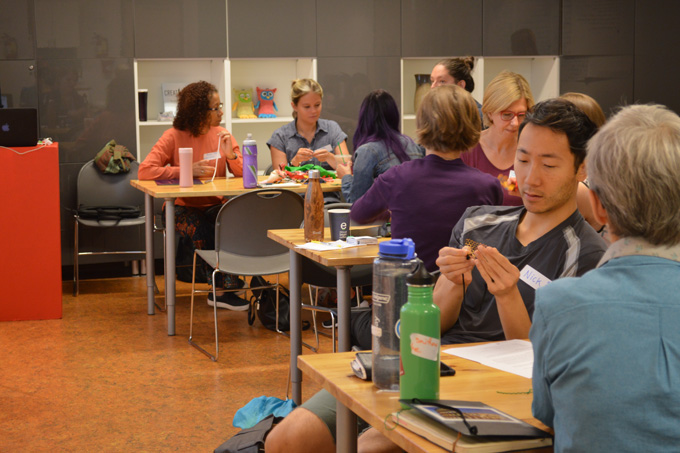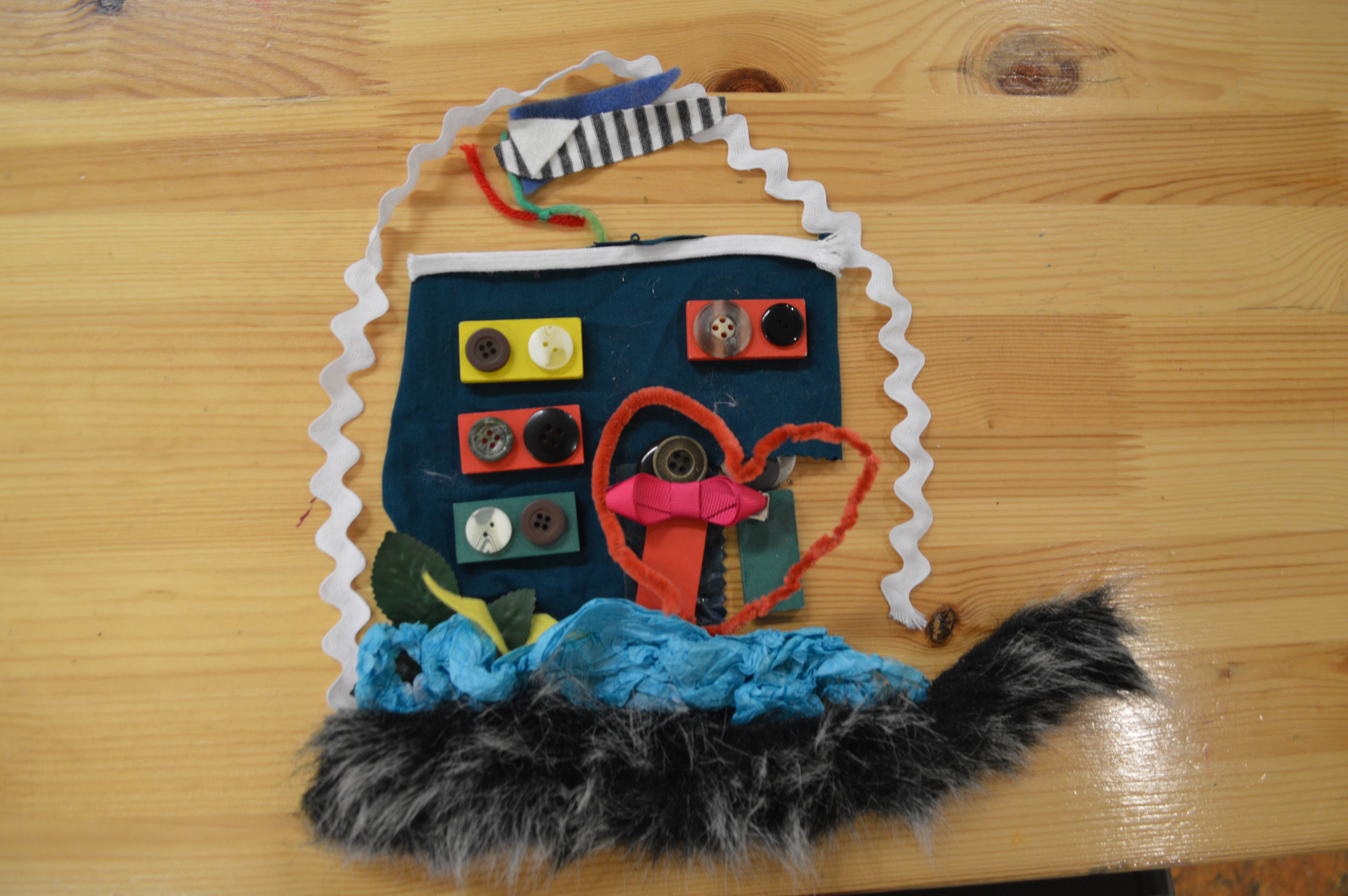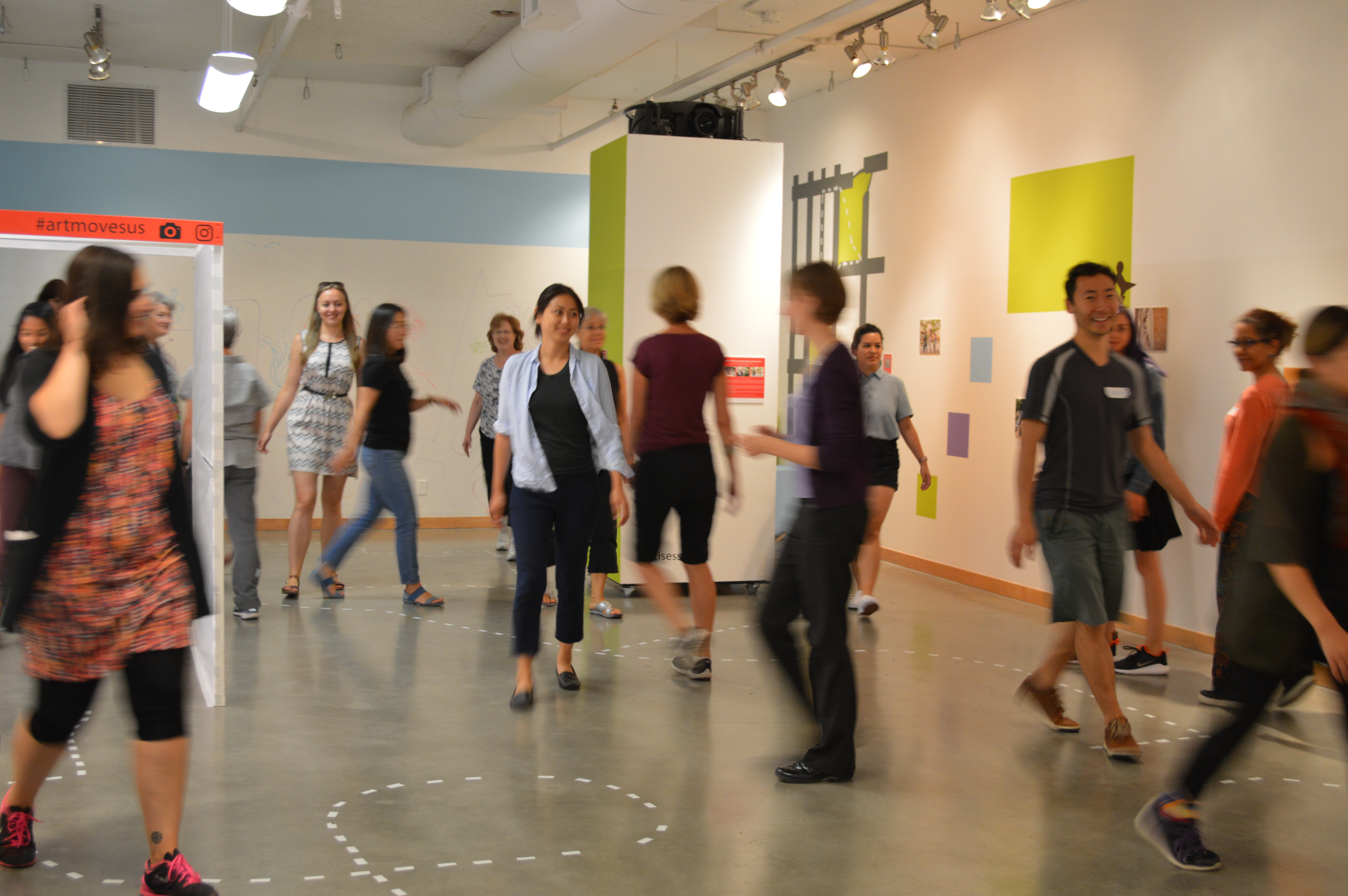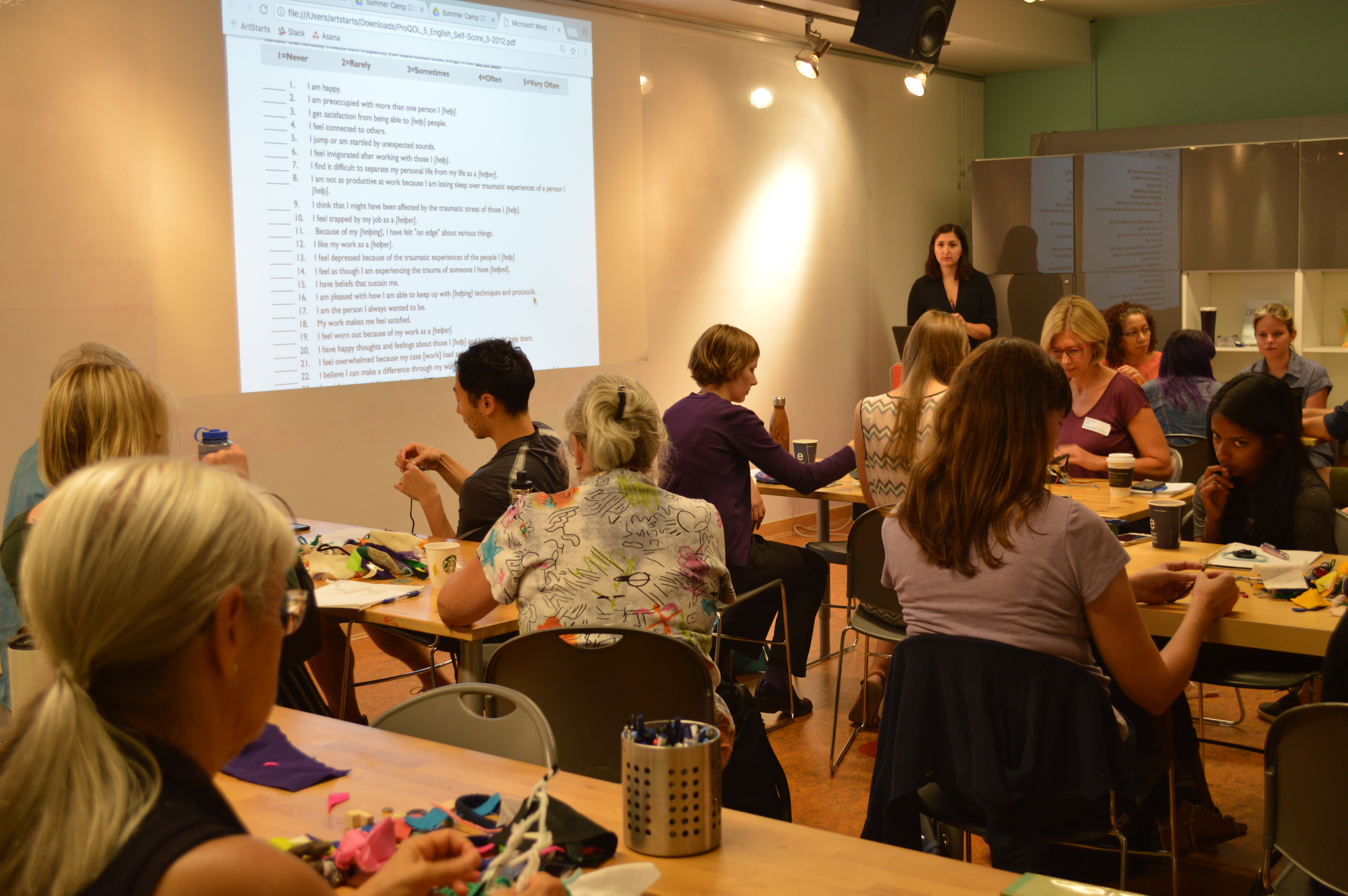October 23, 2018
Reflections: Summer Camp & Social Responsibility

For the past three years, ArtStarts has hosted a special pro-d event just for teachers! Summer Camp gives teachers the tools to navigate the revised BC curriculum while integrating the arts. This year, we focused specifically on one of the Core Competencies: Social Responsibility. We spent two jam-packed days exploring culturally appropriate implementation of the First Peoples Principles of Learning, and learning how to apply trauma-informed principles to make more accessible classrooms and more sustainable school years for teachers themselves. This year we also hosted a record number of teacher candidates from the education program at UBC - we’re wishing them all the best of luck this fall as they head back to university or out into their practicums!
Curious about Summer Camp and teacher pro-d opportunities with ArtStarts? Here’s what one of our educators and one of our teacher candidates had to say about the experience:
What was one of your favourite moments during Summer Camp?
[Rosa Tatiana Celis, Elementary Educator] I personally enjoy storytelling very much, so one of my favourite moments was to listen to Carman McKay, the facilitator who opened the two-day workshop. With his calm presence and demeanour, Carman set a positive and inviting tone to the day. His message was an invitation to connect to the Earth and the people around us; to get to know one another and to grow in our understanding of how more similar (than different) we all are, regardless of origin, culture, or race.
[Sara Coyle, UBC Teacher Candidate] One of my favourite moments during Summer Camp occurred during the opening Facilitator’s workshop. Learning as a process has increasingly been undertaken in a library, or as a google search from a computer. Listening to Carman talk about his personal journey and how he worked towards learning about various First Nations cultures was truly inspiring. He spent years of his time to create a deeper and richer understanding of the artistry and culture of First Nations peoples across North America. Carman shared with us how he travelled to visit different bands to learn more about their culture and to weave his new learnings into his understanding of wider First Nations world-views. I was amazed at the dedication and rigour that Carman applied, the passion he conveyed was amazing! As a starting teacher, Carman’s words helped me to better understand that learning should be active, meaningful; but also takes time, effort, and patience.
What was one of your top "aha!" moments during Summer Camp?
[Rosa] For me, the top moments had to do with the power of language, use in the construction of a story, and history. Carman’s storytelling confirmed the aspect that makes us all human as creative beings; on the other hand, Michelle Nahanee’s presentation and activity made me realize how we become “comfortable” with practices, language, and attitudes that are mostly the result of our ignorance, misunderstanding, and fear of what we consider as different.
[Sara] By being in a group setting for two days with new teachers and more experienced teachers as well, I was able to deepens my understanding of the teaching experience. I found it comforting to hear experienced teachers talk about their struggles and also their triumphs. Listening to the other teachers share their experiences showed me that we are all still learning, reflecting, and improving or practices regardless of how long we have been teaching! The workshop about burnout was especially helpful as it is something that I am especially at risk for while I start this new and rewarding career.
What was something you learned during Summer Camp that you plan to integrate in your teaching practice?
[Rosa] Most definitely, the acknowledgment of who we are and where we are is an aspect I intend to guide my students to do in a more conscientious manner. Also, I’d like to integrate the Question Formulation Technique presented by Leanne Ewen, as a tool to deconstruct and construct new realities and expand our learning. As an amateur dancer myself who loves to have some dance in my classes with my students, I intend to implement the ideas shared by Naomi Brand and Lily Cryan during the spaces of movement and expression, being more aware of the diversity and possibilities of each student.
[Sara] I plan on using the Question Formulation Technique from Leanne’s workshop while I TOC and when I eventually transition to my own classroom one day. I love the flexibility of this technique as it can be applied to any grade level and utilizes core competencies including Critical Thinking. As a TOC, Question Formulation Technique will be a great way for my time in the classroom to benefit the children, especially for times when there is no day plan available.
How has Summer Camp impacted your personal understanding of social responsibility through arts-integrated learning?
[Rosa] The Summer Camps have continually helped me to realize the importance of my role as an educator. If I am to guide the students in my care to become kind, compassionate, and responsible beings, I need to be the embodiment of these traits. Looking for meaningful connections to the place I am and the people I am with; learning more about the history of our ancestors, and living in a space responsible gratitude will lead my thoughts, words, and actions.
[Sara] I have always loved the arts, particularly drawing. Summer Camp gave me so many different tools (and resources!) to integrate social responsibility and art together into meaningful learning experiences that can be modified for everyone. By getting to listen to a variety of speakers, I was able to take something away from each workshop that had a personal significance to me and my teaching practice.
Stay tuned for more news about future teacher opportunities with ArtStarts, and best of luck in the classroom this fall!
Past Stories
Search by category
Accessibility | AIC Projects | Arts Integration in Action | ArtStarts Artists | ArtStarts Team | Community Events and Engagement | Exhibitions | Grants | Guest Blog | Infusion Pro-D | Knowledge Philanthropist | Meet a Community Art Star | Showcase | Supporters | The Next 20




